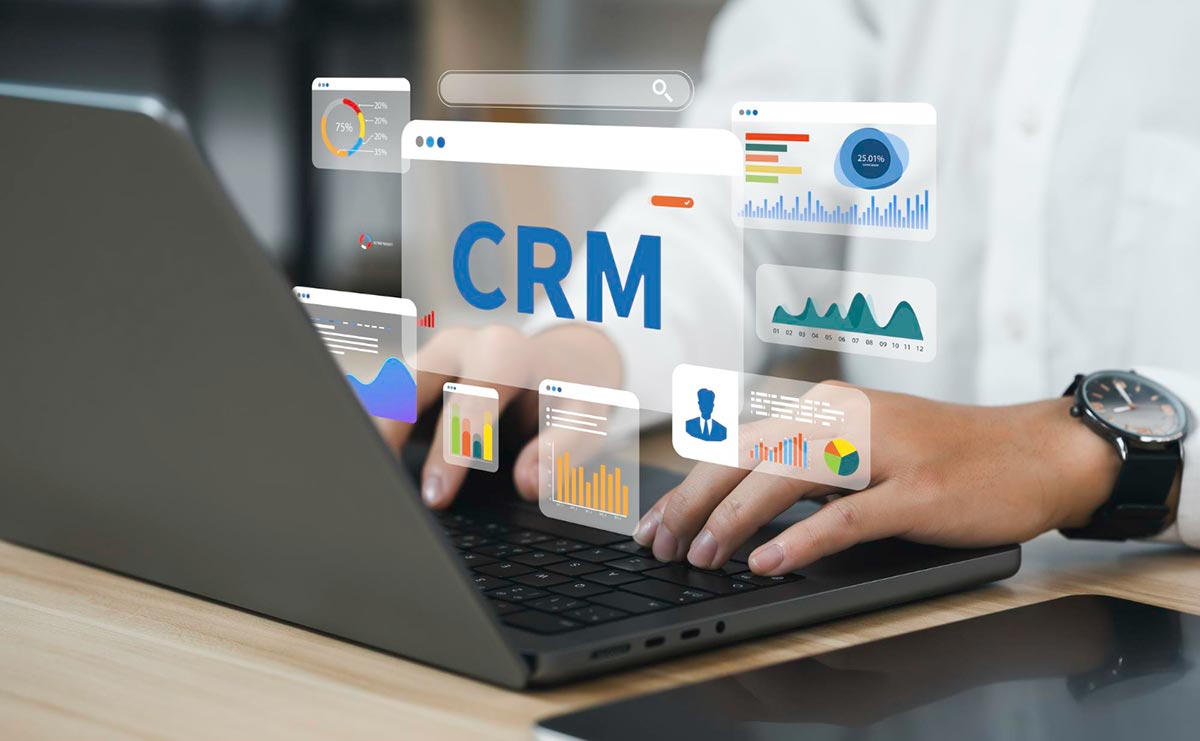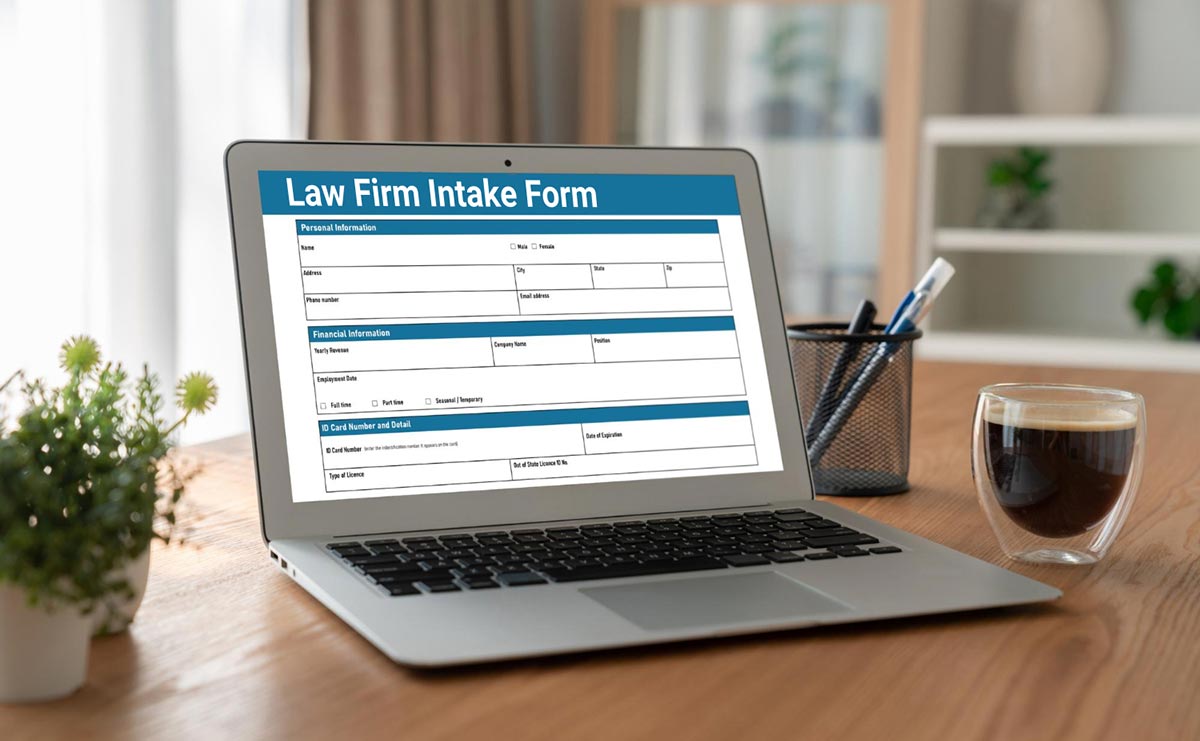Contents
Why Investing in Legal CRM Software is a No-Brainer for Firms
The legal world is changing fast, with new technology, higher client expectations, and a constant push for efficiency reshaping how law firms operate. To keep up, law firms need tools that simplify their work, strengthen client connections, and boost their bottom line. One tool making a huge difference is Legal Customer Relationship Management (CRM) software. Choosing the best CRM for law firms can streamline your client communication, case management, and document organization. Finding the best CRM for lawyers means identifying one that suits your practice size, whether you’re a solo attorney or part of a large firm. If you are on the fence about whether a legal CRM is worth the investment, here is why it is a no-brainer for modern legal practices.
Streamlining Client Relationship Management
Finding the best CRM for law firms requires understanding your practice’s unique needs, such as client portals and legal billing capabilities. Managing client relationships is the cornerstone of any successful law firm, and legal CRM software is a powerful tool that simplifies this critical task, making your work more efficient. Legal CRM software eliminates the inefficiencies and errors often associated with scattered data by centralizing all client information—such as emails, calls, case notes, billing details, and even court deadlines—into a single, easy-to-access platform. This unified system ensures that every team member has the information to communicate with clients promptly, track case progress seamlessly, and confidently meet deadlines.
Moreover, the ability to provide personalized service based on a client’s history fosters deeper trust and stronger client relationships, setting your firm apart in a competitive legal landscape. With tools like RunSensible, you can go a step further by offering an intuitive and user-friendly interface, enabling legal teams to efficiently manage day-to-day interactions, coordinate tasks, and maintain professionalism in every touchpoint, giving you a competitive edge.
Boosting Productivity with Automation
If you’re searching for the best CRM for lawyers, prioritize platforms that offer legal-specific features like document automation and task management. Legal CRM software revolutionizes the way law firms handle routine administrative tasks, automating processes such as sending reminders for meetings, court dates, or deadlines, following up on unpaid invoices, and managing client intake and onboarding. With client intake and CRM software for small law firms, you can automate routine tasks and track every interaction with ease. These are tasks that would otherwise consume valuable time and resources. By automating these specific tasks, legal CRM software significantly reduces the workload for lawyers and administrative staff. This automation not only boosts productivity but also ensures that critical tasks are handled consistently and on time, improving the firm’s overall efficiency.

Furthermore, automation reduces the risk of human error, which is especially critical in legal work where accuracy and compliance are paramount. From ensuring that no deadlines are missed to maintaining error-free client communications, the reliability of automated systems not only enhances but also solidifies the firm’s professionalism and credibility.
Legal CRM software liberates lawyers and staff from the drudgery of repetitive tasks, allowing them to focus on more important aspects of their work, such as developing legal strategies, conducting research, and preparing cases. This shift enables law firms to deliver higher-quality services to their clients while maintaining operational efficiency.
Enhancing Client Intake and Onboarding
The client intake process is often the first impression a potential client has of your law firm, making it a crucial step in building trust and confidence. Legal CRM software transforms this process into a seamless experience by offering user-friendly online intake forms that clients can fill out at their convenience, eliminating the need for time-consuming paperwork or in-person visits. A streamlined document submission process further simplifies onboarding, allowing clients to upload necessary files securely and efficiently. Automated follow-ups ensure no communication gaps, keeping clients engaged and demonstrating your firm’s attentiveness and professionalism. Beyond saving time, this approach conveys that your firm values the client’s time and prioritizes their needs, setting the tone for a positive, client-focused relationship from the beginning. These features also reduce administrative overhead for your team, freeing them up to focus on delivering exceptional legal services while the software maintains a polished and professional image that inspires confidence in potential clients, upholding your firm’s reputation. In general, client intake and CRM software for small law firms streamline the process of capturing leads and managing client relationships from start to finish.
Improving Collaboration Among Team Members
Collaboration in larger firms or multi-department practices often becomes complex due to the sheer volume of information and the need for coordination across various teams. Legal CRM software simplifies this by centralizing client and case data into a unified platform, ensuring all authorized team members can access real-time updates and the most current information. This eliminates silos, reduces the risk of errors, and allows for smoother workflows, even in high-pressure situations. Built-in communication tools enhance collaboration by enabling teams to share updates, assign tasks, and resolve issues without switching between multiple platforms. For example, RunSensible’s collaboration features ensure everyone stays on the same page, helping avoid miscommunications, duplicate efforts, and delays in critical processes. By fostering transparency and enabling efficient teamwork, legal CRM software significantly improves productivity, making the audience feel more efficient and strengthening the firm’s ability to provide consistent, high-quality service to clients.
Enhancing Data-Driven Decision-Making
Legal CRM software is a powerful tool that empowers law firms with advanced analytics and reporting tools. It provides valuable insights into various aspects of their performance, allowing them to take control of their business strategies. By examining client trends, billing patterns, and conversion rates, firms can uncover areas that need improvement, refine their strategies to drive business growth and make more accurate revenue forecasts. These insights also help firms allocate resources more efficiently and identify high-value clients or practice areas that require greater focus. Additionally, having access to real-time data ensures that decision-making is quicker and more informed, enabling firms to adapt to changing market dynamics and maintain a strong competitive edge. With the ability to track progress, measure outcomes, and identify opportunities, legal CRM software becomes an indispensable tool for steering a law firm toward long-term success.
Ensuring Compliance and Security
Legal firms manage critical and sensitive client information, making data security a non-negotiable priority. Legal CRM software plays a crucial role in meeting these demands by employing advanced security features such as end-to-end encryption. This ensures that all communications and data transfers are protected from unauthorized access. The software’s access controls further enhance security by restricting visibility and editing rights to authorized personnel, thereby reducing the risk of internal data mishandling. Moreover, legal CRM software often adheres to strict compliance standards, such as GDPR, HIPAA, or PIPEDA, ensuring that the firm’s data management practices meet industry regulations and legal requirements.
Beyond regulatory compliance, secure CRM software also protects firms from the growing threat of cyberattacks, which can result in significant financial and reputational damage. By proactively investing in robust security measures, firms can avoid costly breaches, legal liabilities, and loss of client trust. Moreover, clients increasingly expect law firms to prioritize data privacy and security, making this an essential component of a professional and trustworthy practice. With features like automated backups, intrusion detection, and audit logs, legal CRM software not only secures data but also provides transparency and accountability in data management. Ultimately, adopting secure CRM software not only protects sensitive client information but also strengthens a firm’s reputation, demonstrating a commitment to excellence and ethical practice.
Scalability for Growing Firms
As a law firm grows, managing clients and cases becomes increasingly complex, but legal CRM software offers a scalable solution to meet these evolving needs. It easily adapts to accommodate an expanding client base, adding new practice areas, and onboarding more staff members. This adaptability reassures firms that the software will continue to be useful as their business expands. By providing a system that scales seamlessly with growth, legal CRM software allows firms to maintain high levels of efficiency and organization without overburdening their resources, ensuring they can focus on delivering excellent client service while navigating the challenges of expansion.
Cost-Efficiency in the Long Run
While the initial investment in legal CRM software may seem significant, the long-term financial and operational benefits far outweigh the cost. Legal CRM software streamlines workflows by automating repetitive tasks, enhancing productivity, and reducing human errors, allowing firms to operate more efficiently and effectively. This improved efficiency reduces overhead costs, as less time and fewer resources are spent on administrative tasks. Alongside, a streamlined client lifecycle means cases are resolved more quickly, improving cash flow and allowing the firm to take on more clients.
Beyond operational savings, legal CRM software drives revenue growth by strengthening client relationships. Features that ensure timely communication, personalized service, and professional follow-ups lead to higher client satisfaction, improving retention rates, and encouraging referrals. Over time, the software pays for itself by creating a foundation for sustainable growth, increasing profitability, and giving the firm a competitive edge in the legal market. By investing in a tool that supports both immediate operational needs and long-term strategic goals, firms can achieve a higher return on investment and position themselves for ongoing success.
Meeting Modern Client Expectations
Today’s clients have higher expectations than ever, demanding transparency, accessibility, and swift resolutions when working with legal professionals. Legal CRM software is specifically designed to help firms exceed these expectations by providing a seamless client experience. With features such as real-time updates on case progress, clients no longer feel left in the dark, fostering trust and confidence in the firm’s ability to handle their matters. Online portals add another layer of convenience, allowing clients to securely share documents, schedule appointments, and access important information whenever needed, eliminating unnecessary delays and enhancing accessibility.
Another critical component that legal CRM software supports is consistent and timely communication. Automated reminders, follow-ups, and personalized messages ensure clients remain engaged and informed throughout their legal journey, minimizing frustration and reinforcing the firm’s commitment to their needs. By meeting and often exceeding these expectations, firms enhance client satisfaction and establish themselves as reliable and professional service providers.
This elevated client experience has a ripple effect, improving the firm’s reputation and increasing the likelihood of referrals and repeat business. Satisfied clients are more likely to recommend the firm to others and return for future legal needs, creating a sustainable growth cycle. In a competitive legal market, offering this level of service is no longer optional—it is essential for building lasting relationships and staying ahead. Legal CRM software ensures that firms are well-equipped to deliver on these expectations, driving both client loyalty and business success.
Choosing the Right Legal CRM Software
Investing in the right legal CRM software is essential for law firms to optimize operations and deliver exceptional client experiences. RunSensible is more than just a legal CRM—it is a complete practice management solution designed to simplify and elevate the way law firms operate. With a user-friendly interface, it empowers legal professionals to efficiently manage every aspect of their practice, from client intake to final settlement. The platform integrates seamlessly with your existing tools, including email systems, calendars, and billing software, ensuring all your operations work harmoniously. What sets RunSensible apart is its ability to adapt to the specific needs of various practice areas, offering fully customizable workflows that streamline case management.
RunSensible’s robust features include advanced intake management to capture and organize client details, powerful document automation tools to save time on repetitive tasks, and a secure client portal that enhances transparency and communication. Beyond the core functionalities, the platform supports your team with thorough training and ongoing customer support, making implementation straightforward and stress-free.
RunSensible is not just about managing your practice—it is about transforming it. With built-in marketing tools, task management, and analytics, it helps firms grow by improving productivity, client satisfaction, and operational efficiency. Whether you are a small firm or a large practice, RunSensible provides everything you need in one platform, eliminating the need for multiple subscriptions and streamlining your tech stack. Small law firms that implement client intake and CRM software often see improved client satisfaction and a significant increase in efficiency From intake to invoicing, RunSensible is your partner in delivering exceptional legal services while maximizing profitability.
Final Thoughts
The legal industry is undergoing a profound transformation, and keeping pace requires embracing tools that drive efficiency, enhance client experiences, and support sustainable growth. Legal CRM software is no longer a luxury but a necessity for modern legal practices. From streamlining client management and automating workflows to ensuring compliance and improving collaboration, these platforms empower firms to deliver higher-quality services while staying competitive in a rapidly evolving market. With the growing demand for digital transformation, identifying the best CRM for law firms can give your practice a competitive edge.
RunSensible stands out as a comprehensive solution tailored to meet the unique needs of legal professionals. Its user-friendly interface, customizable workflows, and robust features make it an invaluable tool for firms of any size. By investing in a platform like RunSensible, law firms can confidently navigate the complexities of modern legal practice, strengthen client relationships, and achieve long-term success.
The decision to adopt legal CRM software is not just about keeping up with technological advancements; it is about setting your practice up for excellence. In a competitive industry, staying ahead means prioritizing tools that enhance every aspect of your work. RunSensible offers the innovation, support, and adaptability necessary to thrive in today’s legal landscape—making it a smart, forward-thinking choice for any firm ready to elevate its practice.
Disclaimer: The content provided on this blog is for informational purposes only and does not constitute legal, financial, or professional advice.







